Feature for Today
On 21 Aug In 1888, William Seward Burroughs received U.S. patents on four adding machine applications. They were the first patents he held for his "Calculating-Machine" that he would continue to improve and successfully bring to market. He incorporated his business as the American Arithmometer Corporation in Jan 1886. After Burrough's early death in 1898, that company reorganized as the Burroughs Adding Machine Co., —its new name was in tribute to the inventor.
For those of us who reach for a cell phone or electronic calculator to do a quick sum, things have come a long way since Burroughs revolutionized the tedious manual calculations done by clerks in accounting and banking.
An extract from the book, The City of Detroit (1922) on the Burroughs Adding Machine gives some some human interest about what motivated him, his challenges in designing and marketing the equipment, and the eventual prosperity of the business which continued to grow after his death.
You may also take interest in an extensive biography of Benjamin Thompson, Count Rumford from Leading American Men of Science (1910), or, the controversial patent dispute won in the U.S. by William Kelly against Henry Bessemer's steel-making process. A Scientific American article (1857) reveals An English Opinion of the United States Patent Office Management is critical of the assignment of priority to Kelly whose winning claim was based on making his discovery before Bessemer, although Kelly failed to patent it in a timely way.
For those of us who reach for a cell phone or electronic calculator to do a quick sum, things have come a long way since Burroughs revolutionized the tedious manual calculations done by clerks in accounting and banking.
An extract from the book, The City of Detroit (1922) on the Burroughs Adding Machine gives some some human interest about what motivated him, his challenges in designing and marketing the equipment, and the eventual prosperity of the business which continued to grow after his death.
You may also take interest in an extensive biography of Benjamin Thompson, Count Rumford from Leading American Men of Science (1910), or, the controversial patent dispute won in the U.S. by William Kelly against Henry Bessemer's steel-making process. A Scientific American article (1857) reveals An English Opinion of the United States Patent Office Management is critical of the assignment of priority to Kelly whose winning claim was based on making his discovery before Bessemer, although Kelly failed to patent it in a timely way.
Book of the Day
On 21 Aug 1973, Sergey Brin was born, the Russian-American computer scientist who co-founded Google, Inc. with Larry Page in 1998. Today's Science Store pick is The Google Guys: Inside the Brilliant Minds of Google Founders Larry Page and Sergey Brin, by Richard L. Brandt, an award-winning author who has written about Silicon Valley for two decades... which is longer than Google has been around. The result of the collaboration of Brin and Page has in such a short time made a seismic shift in the utility of computers to so many millions of people around the world. But you knew that. What else can you find out that you never knew? Read this book! It is available on Kindle for $10.67 New from $2.00 or Used from $0.63 (as of time of writing).
For picks from earlier newsletters, see the Today in Science Science Store home page.
For picks from earlier newsletters, see the Today in Science Science Store home page.
Quotations for Today
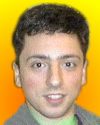
"If what we are doing is not seen by some people as science fiction, it's probably not transformative enough." (Explaining his enthusiasm for a laboratory experiment to grow a meat patty from cells in the lab, for which he contributed more than $330,000.)
- Sergey Brin, Russian-American computer scientist (born 21 Aug 1973)
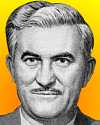
"There is a genuine thirst for scientific knowledge in most homes. Satisfying that thirst will, I believe, create a friendly attitude toward science and scientists which will favor the cause of science in the future. Science needs an informed and friendly public to back it up." (Stating the goals of his NBC TV show, Nature of Things, which first aired on 5 Feb 1948.)
Quiz
Before you look at today's web page, see if you can answer some of these questions about the events that happened on this day. Some of the names are very familiar. Others will likely stump you. Tickle your curiosity with these questions, then check your answers on today's web page.
Births
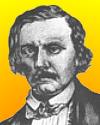
 Charles Gerhardt, William Murdock and Jean Servais Stas were each born on 21 Aug, though in different years. Not in the same order, they were notable for accurate determinations of atomic weights, first to make extensive use of coal gas for illumination, and developing a classification of organic compounds.
Charles Gerhardt, William Murdock and Jean Servais Stas were each born on 21 Aug, though in different years. Not in the same order, they were notable for accurate determinations of atomic weights, first to make extensive use of coal gas for illumination, and developing a classification of organic compounds. Can you match each scientist to his claim to fame?
Can you match each scientist to his claim to fame?
 On 21 Aug 1973, Sergey Brin was born, the Russian-American computer scientist who was a computer science graduate and interrupted his Ph.D. studies after he co-founded Google, Inc. with Larry Page in 1998.
On 21 Aug 1973, Sergey Brin was born, the Russian-American computer scientist who was a computer science graduate and interrupted his Ph.D. studies after he co-founded Google, Inc. with Larry Page in 1998.  What is the origin of the name for Google?
What is the origin of the name for Google?Deaths
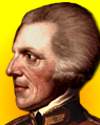
 Count Benjamin Thompson Rumford (1753-1814) was an American-born British physicist, government administrator, and a founder of the Royal Institution of Great Britain, London. Because he was a Redcoat officer and an English spy during the American revolution, he moved into exile in England.
Count Benjamin Thompson Rumford (1753-1814) was an American-born British physicist, government administrator, and a founder of the Royal Institution of Great Britain, London. Because he was a Redcoat officer and an English spy during the American revolution, he moved into exile in England. For what field of investigation is he best known?
For what field of investigation is he best known?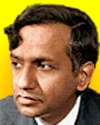
 Subrahmanyan Chandrasekhar (1910-1995) was an Indian-American scientist who shared the 1983 Nobel Prize for Physics.
Subrahmanyan Chandrasekhar (1910-1995) was an Indian-American scientist who shared the 1983 Nobel Prize for Physics. What was his field of research? What is the “Chandrasekhar limit”?
What was his field of research? What is the “Chandrasekhar limit”?Events
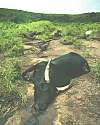
 On 21 Aug 1986, more than 1700 people died when gas erupted from Lake Nyos, a volcanic lake in the West African nation of Cameroon. The gas flowed down valleys and travelled as far as 15 miles (25 km) from the lake.
On 21 Aug 1986, more than 1700 people died when gas erupted from Lake Nyos, a volcanic lake in the West African nation of Cameroon. The gas flowed down valleys and travelled as far as 15 miles (25 km) from the lake. What gas caused these deaths?
What gas caused these deaths?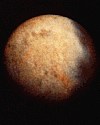
 On 21 Aug 1989, the U.S. space probe Voyager 2 fired its thrusters to bring it closer to the mysterious moon Triton. The photograph shows a false-colour image of Triton taken two days before its closest approach.
On 21 Aug 1989, the U.S. space probe Voyager 2 fired its thrusters to bring it closer to the mysterious moon Triton. The photograph shows a false-colour image of Triton taken two days before its closest approach. Triton is a moon of which planet?
Triton is a moon of which planet?Answers
When you have your answers ready to all the questions above, you'll find all the information to check them, and more, on the August 21 web page of Today in Science History. Or, try this link first for just the brief answers.
Fast answers for the previous newsletter for August 20: Sputnik I. Tetsuzo = artificial heart; Suess = Gondwanaland; Berzelius = element symbols. He believed in a steady-state theory (He only coined the term "Big Bang," which he did not believe in). 400,000 atmospheres. Greeting in many languages; music samples; sound of nature. Decade containing the year 1930.
Fast answers for the previous newsletter for August 20: Sputnik I. Tetsuzo = artificial heart; Suess = Gondwanaland; Berzelius = element symbols. He believed in a steady-state theory (He only coined the term "Big Bang," which he did not believe in). 400,000 atmospheres. Greeting in many languages; music samples; sound of nature. Decade containing the year 1930.
Feedback
 If you enjoy this newsletter, the website, or wish to offer encouragement or ideas, please send feedback by using your mail reader Reply button, and send a message.
If you enjoy this newsletter, the website, or wish to offer encouragement or ideas, please send feedback by using your mail reader Reply button, and send a message.--
If you do not want to receive any more newsletters, Unsubscribe
To update your preferences and to unsubscribe visit this link

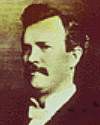


Δεν υπάρχουν σχόλια:
Δημοσίευση σχολίου